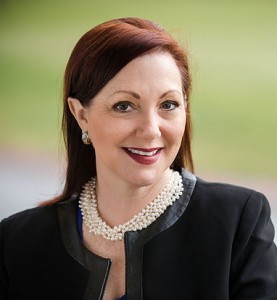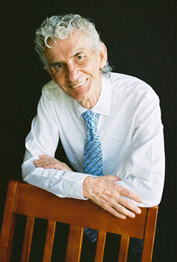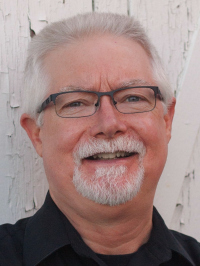Blog
Seven Tips for Your Next Writers’ Conference
 I attended my first writers’ conference in 1989. Yes, I am that old.
I attended my first writers’ conference in 1989. Yes, I am that old.
I was a magazine editor at the time, and knew absolutely nothing about writers’ conferences. Since then, however, I have served on faculty more than a hundred times, and have learned a thing or two about writers’ conferences, knowledge that I am happy to impart—for the right price. Today, since we are approaching the height of the Christian writers’ conference season, that price is “free.” Lucky you.
So, let me share seven tips for your next conference:
- Prioritize learning at your first conference, selling and networking thereafter
Every writers’ conference has a plethora of workshops on practically every writing and publishing subject you can imagine, from “writing personal experience stories” to “building a brand” and “don’t write about zombies; write for them” (I might have made up that last one). You will learn something new at every writers’ conference you attend. But you’ll cheat yourself if you don’t also begin developing relationships with other writers and pitching your work (devotions, articles, books, etc.) to editors and agents. That’s why most writers’ conferences provide the opportunity to schedule appointments with the pros, so seize the opportunity.
- Choose your conference strategically
There are so many good conferences, and you can’t possibly attend all of them. So carefully peruse the brochure or website according to your budget and priorities. Consider location; will you be able to carpool with someone or commute from Aunt Iphigenia’s house? Review the classes; do the topics address your top needs as a writer? Study the faculty; will you be able to show your work to editors and agents who publish the sort of stuff you write?
- Plan (and print) ahead
Even for your first conference, take a sample of your writing to show to someone and learn from their feedback. Have quality business cards printed and ready (preferably with a professional-looking photo of you). Write and print query letters addressed to specific editors you plan to meet. Prepare one-sheets for a book or two. Take along copies of a book proposal in case an editor loves your idea and wants to take it back to the office after the conference.
- Don’t try to do everything
If you’re anything like me, you want to get your money’s worth from a conference. But resist the urge to do everything you possibly can at the conference. You’ll exhaust yourself and exhausted people don’t usually make great decisions or first impressions. Include recovery time in your schedule, as your head will probably be spinning after the first day.
- Leave the introvert at home
Many writers are introverts, but I suggest that you leave the introvert at home and try to function like an extrovert at a writers’ conference. That doesn’t mean you have to be the life of the party, just that you work a little harder to introduce yourself, strike up conversations, and ask questions. Your fellow writers (and even editors and agents) like to talk about words, books, writing, and themselves, so invite them to do so at every opportunity. If you do, I promise: you will make lifelong friends and develop rewarding connections.
- Consider writers’ conferences an ongoing part of your growth strategy
Don’t imagine that you will attend a writers’ conference and then go home knowing everything you need to know to succeed. Rather, consider regular writers’ conferences (I recommend two a year, if you can afford it) to be an ongoing part of your growth strategy as a writer. Over the next few years you will be amazed at the ground you’ve covered and the progress you’ve made.
- Follow up
Editors say it all the time: a small percentage of the manuscripts they invite from conferees actually get sent. Don’t be a dunce. When an editor invites you to send a proposal or manuscript after a conference, move heaven and earth if you must, but send it! Even if you don’t get such an invitation, you can still follow up your conference experience with a thank you note to the director or a faculty member or an editor with whom you met. And one of the best ways to follow up your conference is to set goals and schedule your writing between that conference and the next.
There you have it. I could easily list seven more suggestions, but who has time for that? We have packing and preparing to do.
Want to study fiction? Watch movies!
We book writers often study the works of other book writers … not to copy work, but to learn more about craft. If this book made it to #1 on any list, the question of “why” must be answered.
We study things like opening pages, middle of the book techniques (how do we keep the story interesting), the climax and the wrap-up. We write down characters’ names, their background stories and how the author seemed to effortlessly wove that back story into the novel.
We look at plot points, at the Major Dramatic Question, and at dialogue (Did it sound realistic? Did it push the story forward? Did it incorporate dialect without overburdening the reader?)
But did you know you can do the same thing with movies?
Years ago, I decided I wanted to write a novel. But I had to admit I knew nothing about writing a work of fiction. I knew all about reading them … and I
lso knew a lot about watching movies. I had my favorites–those I watched over and over again. And why? Because the story had been well-told.
But how?
I began to break down movies, scene by scene, character by character … and I noted a pattern. Using that, I wrote my first novel … and my second … and my third … and my sixteenth, which releases this April (The One True Love of Alice-Ann. Tyndale).
For several years now I’ve been teaching the techniques I learned and incorporated and, quite honestly, nothing thrills me more than hearing other writers say, “I can’t watch a movie now without seeing the pattern!” This is not movie-spoiling. This is movie enhancement!
I hope you’ll join me for my continuing workshop Foundations of Fiction Through Film. We’re sure to bring new light to movies as well as to your work.
Tova ha’aretz me’od me’od!
How do you know what to write?
“I have so many ideas for articles and books that I don’t know what to write.” That’s one of two comments I hear from writers. “I want to write, but I don’t know what I want to write,” is the other. Although they come at this from opposite perspectives both have the same problem.
They don’t know where to focus their energies.
I was the former and it took me about two years of writing to know where I wanted to center my attention. I tried any number of things from fiction to nonfiction, children’s stories, Bible studies, devotionals, Christian living, and health-and-fitness pieces.
I wrote articles and short stories. Most of them found publishers, but that wasn’t the deciding factor for me. As I threw my effort into the pieces I tried to stay aware of my attitude. Creating the articles gave me a lift and a few of them made me ask myself, Why am I doing this?
As I continued to experiment, I figured out what I didn’t like—particularly Bible studies and children’s stories, even though I sold them.
One day I realized I’m not a cool, objective author—C.S. Lewis is my best example. Excellent material, but he isn’t self-revealing. One editor told me, “You write with heart.” That sentence enabled me to label myself as a warm, subjective.
I could turn out objective pieces and even produced The Dictionary of Bible Literacy for Thomas Nelson, which contained more than 150,000 words. Good experience for my head, but it did nothing for my heart. That was an important insight because it brought me close to focusing.
After publishing more than 100 articles, I transitioned into books. Then an editor said, “You know how to get inside people’s heads.” (I wasn’t aware of that ability.) He asked me to become a ghostwriter for his publishing house, and they published 35 of my books..
Ghostwriting became my primary focus (and provided a good income), and yet it hadn’t been anything I’d considered. But once I started, I knew that’s where I belonged.
One reason I recommend writers conferences is to help conferees become aware of the variety of opportunities in publishing. “Try classes you might not have thought about,” I advise. “Talk to authors who successfully publish in areas where you haven’t read widely.”
In short, be open to the Holy Spirit. Who knows what insight you might receive?
Write Tight – Write Devotions
“Whenever I find my writing getting sloppy, I write a devotional for The Upper Room and it tightens it right up,” book author and former editor (The Saturday Evening Post, Guideposts) Hal Hostetler once told me. He claimed that writing devotionals was the best discipline a writer could have. In general, the shorter the piece, the harder it is to write. And considering how much The Upper Room expects out of those 250 words, anyone who hopes to write for us will first have to master the techniques of excellent style.
But mastering—and continuing to exercise—great writing style isn’t the only reason to write devotionals. This practice also provides great spiritual discipline. After all, connecting God’s Word to the experiences of our lives is what Christians should be doing every day. So why not follow up by writing down this connection, adding a section to help the readers apply it in their own lives, and then submitting it be published? And if the magazine that publishes your submission is The Upper Room, you’ll also get to connect with millions of readers in over 100 countries worldwide.
This is why every Christian writer should be writing devotionals—either as a main focus or in addition to writing projects in other genres. Attending my continuing class at Blue Lake Christian Writers Retreat will move writers down the road toward a lifetime of practicing this excellent writing and spiritual discipline.
Susan King
Associate Editor
The Upper Room magazine
How to Be a Million-seller
By James N. Watkins
This month, I reached 12 million readers. Yep! Twelve with six zeros. But you won’t find me on the Christian Booksellers Association’s best-seller list. In fact, you won’t even find this month’s sales on amazon.com or even your favorite brick and mortar book store. Nope!
I appeared in the devotional magazine, The Upper Room, which has a circulation of 7 million. And I write a monthly column for the Presidential Prayer Team’s newsletter, which goes to 5 million subscribers. Plus, that doesn’t include several thousand readers on my hopeandhumor.org website.
Here’s the harsh reality. The average book sells only 500 copies in its lifetime. And 98 percent of books sell 5,000 copies or less. I’ve been fortunate that my book, The Imitation of Christ: Classic Devotions in Today’s Language, is in the top 2 percent of sales, since it sold 5,000 copies in one year. But let’s compare numbers. Five thousands readers in one year vs. 12 million in one month! Not much of a contest.
Everyone has a message they want to share or a story they want to tell. And they dream of a large audience to read their words. But they choose to put all their time and effort into writing a book and then work pitching it to publishers who seem as interested in it as a cat.
If you want respect, write a book. If you want readers, write an article.
I’ve had 20 books and over 2,000 articles published, but people are much more impressed with my books than my 100 times more articles with several thousand times more readers. So, yes, you get more respect with books—book signings, TV and radio interviews, etc.—but you get exponentially more readers with articles!
For instance, my work has appeared in Christianity Today, Decision, Focus on the Family, Guideposts, Leadership, Ministry Today, Rev., Today’s Christian Woman, The Upper Room, The Whittenberg Door, War Cry and many more. And I’ve written letters to the editor published in TIME and USAToday—again, an audience of millions!
Because periodicals aren’t risking thousands of dollars on one story, they are more willing to risk running the story of an unknown author. So, you not only can get many more readers, but it’s so much easier to get published in periodicals. And because they aren’t charging $24.95 for hard cover, they have thousands more readers.
Here are some harsh realities in the book publishing industry:
1. Unless you’re incredibly famous, were involved in a well-known news story (think 9/11) or have an amazing story (Heaven Is For Real for instance), a book publisher probably won’t be interested in your book.
2. Book publishers want authors who have a “platform” from which to promote their book: a busy national speaking ministry, a popular TV or radio show, a well-trafficked Web site with 100,000 daily visitors, etc. Without these platforms, a royalty publisher won’t be willing to gamble $50,000 or more on publishing your book.
If you want notoriety, write books. If you want money, write articles.
Here’s another harsh reality. (Sorry. I’m just trying to keep it real.) Yes, I still write my share of book proposals—and occasionally get a book contract from a royalty publisher—but I make my most money and reach the most readers with my articles and my blog. (I once received a royality check for 37 cents! I get a lot more from article sales!)
In fact, 95 percent of book advances never earn out. That means authors don’t make enough to match their advance, and thus they don’t see any more money than the advance. Publishers are hoping for one or two best-sellers that will more than cover all that money lost money on unearned advances. (Books that sell a million copies account for just 0.0000008 percent of all sales.)
And finally, a hopeful reality: If you have a message you want to share or a story you want to tell—and want a large audience to read your work—first, write an article. Most of my books began as articles. My very first published book was a collection of columns I wrote for a Sunday school paper. And so was the second. As the prophet advises, “Don’t despise small beginning.”
Thousands of periodicals are looking for you and your article, testimony or short story! And you will reach hundreds of thousands—or even millions—of readers with that magazine. That’s a reality!
Jim is an award-winning author and conference speaker. Read more at jameswatkins.com.

 Follow
Follow




